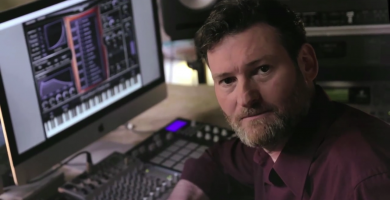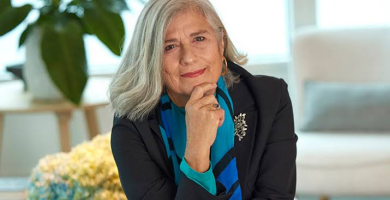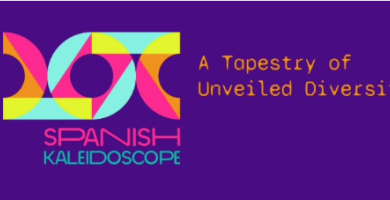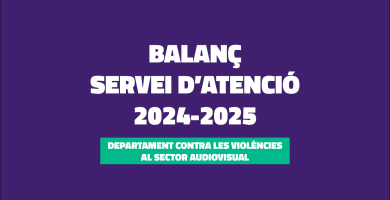
Marcús JGR: “Each character has a certain sound and that is what you have to look for".
This month we interview Marcús JGR, a musician and composer of soundtracks. You will have heard his work in Uncertain Glory or The Testament of Rosa. He has also, however, composed music for television, documentaries, advertisements and videogames.

Your name is José González Riera. Where did this pseudonym Marcús JGR come from?
Marcús was the second surname of my mother who died when I was 11. I have very fond memories of her. When she died, the family fell apart, because she represented the foundations. I gave myself this name as a tribute to her.
You did not train as a musician. You weren’t able to study. How did you come to the world of music?
I am self-taught. It is true that I come from the world of decoration and refurbishment. But the crisis arrived and work ended. I had always wanted to make film music. I have always listened to a lot of soundtracks, because I like film music. My brother has a recording studio and he gave me some programmes and I said: “I’m going to learn to compose”. I sent what I composed to a production company and they replied something which surprised me: “You should be one of the best composers that we know”. I was astonished and I thought: “it can’t be true”. And they immediately put me in contact with Agustí Villaronga and I have already made three feature films with him.
I learnt completely by ear. This style arises from listening to many soundtracks. Now, everyone works with a sequencer; there are no more composers who sit down at a piano to write.
Like what happens in films when you see any musician composing.
Exactly. In the States they’ve been using sequencers for decades. It’s like having a home studio in which you can gradually record each track and be all the musicians of the orchestra. When you have an orchestration like that, you see that you can be the violinist, the flutist, now the cello, etc. That’s how I started and it appears that some people like me and others don’t. As always happens in this world.
Your first work with Villaronga was for the documentary The Testament of Rosa. How do you approach the music of a documentary which talks about a specific person, in this case Rosa Novell, and how do you try to reflect this person in the music?
I told Agustín that each character has a sound. When you know a person or a character and you study them, they have a certain sound and that is what you have to look for. A person who has a very strong personality has a low-pitched sound. Someone who is weak tends to have a very high-pitched sound. You have to look for the sound of each person. And with Rosa Novell a certain sound occurred to me which was also related to the state of the cancer that she had, already quite advanced and terminal. Agustí liked it. It was more a question of atmospheres than just musical compositions.
Earlier you mentioned that this is the third time that you’re working with Agustí Villaronga. Does it help to work with the same director? Is it easier and does it help to have better communication when illustrating a film musically?
Over time you trust the other person more; you know them better and you know their tastes and their tendencies more. Not all directors have the same. What did happen with him, though, is that initially he gave me more directions. Then he realized that, leaving me free, simply giving me the images, what I proposed fitted in better with the idea of the character. Sometimes the director has a specific idea in their head and you present completely different ones to them. In the end, Agustí has come to the conclusion with me, as he says in the documentary made on the recording in London of the soundtrack for Born a King: “Marcús has his own life. He does his own thing. You have to leave him alone”. Sometimes, when they give you a lot of directions, it has the opposite effect, and limits your creativity. I love working with Agustí because he is someone who knows how to tap the potential of creative people. He listens to what you do and then maybe makes a couple of observations. He’s a great professional.
In your next work with Villaronga, Born a King, you recorded in England with the Royal Philharmonic Orchestra of London and with the conductor Paul Bateman; you also mixed in the mythical Abbey Road studios. What was the recording like?
Extremely easy. The more professional the musicians are, the easier it is to work. I was surprised when I saw the orchestra which, without rehearsing or anything, began to look at the music, sat down and played it. And they nailed it. There were a couple of little things, but it was more a question of instrumentation. The flutes in the composition that I made were Arabian and the ones that they had were from a traditional orchestra. These flutes had to be replaced with the other ones. But they were just minor aspects.
You were nominated for best original score for Uncertain Glory. What was this experience like?
The truth is that, I believe that when you have a career for a long period of time, you gradually assimilate things and maybe it is impressive to be nominated for the Gaudí awards. But when you haven’t had enough time to assimilate all this, you realize afterwards, when the moment has passed. For you it’s just another party. Also, on the day of the Gaudí awards, I had such a bad back - I had to have an operation - that I said: “when they call me up I don’t think I’ll be able to” (Laughs). But, it was a very good experience which I wasn’t expecting.
For people who don’t know how the composition of soundtracks works, could you explain your process to us a little?
It has changed a great deal over the years. The way of working, for example. People still think that a film composer is sitting in front of a piano, writing the notes. The industry doesn’t work like that any more. You have a sequencer, they send you the images and then you begin to create. All this is recorded in MIDI, a format which triggers each of the sounds that you’re playing. After this MIDI, an orchestrator writes the score and an orchestra specialist puts the finishing touches to the orchestration so that then the orchestra can play it. Nowadays, the great majority of musical productions which are created are really digital. Hollywood uses 95% of digital productions and does not record with orchestras. Although it all depends on the production budget. If it is a very big production, as occurred with Born a King, we are going to record in London, in Abbey Road, the most expensive studios in the world, with the conductor Paul Bateman who conducts the London National Symphony Orchestra. But if you have a small budget you have to do it all digitally. And it ends up giving a very good result. There is now very little difference between digital and analogue. This has also occurred in the world of images. There are soundtrack critics who say that this has been done to reduce costs, etc. And yes, but what you have to see is the final work. The composition itself. In the States they assimilated this decades ago and here it appears to be a little more difficult. It has also made things much faster.
How does the creation of the soundtrack work through the images? Do you view the film as a whole or in parts?
I will tell you how I work, because I don’t know how other composers do it. When they tell me that I’m entering a project, the first thing that I ask for is to be sent the script. Because when I read the script, I get a general idea of how the film is going to be. With this general idea, I can compose the first piece, which is normally going to be the main piece which explains the whole story of the film. I need the images for the rest. At least with Agustí, as they gradually edit the film they send me the images with the timecode below and indicating the sequence number. As I have already read the script, I already know the story. They don’t need to send me the film already complete from beginning to end. Maybe the editing of three quarters of the film and I work with that, because I already know what came before and what goes afterwards. When the film editing is finished, it is then necessary to put the finishing touches because normally the first edit is very long and it has to be cut back.
What considerations are necessary when composing a piece for a film which you do not need to take into account for other compositions, for example the series Albert’s Garden?
They are looking for a subsidy to finish it. It has 13 chapters. One season, but the idea is to make over 100. It is very interesting. Albert’s Garden or Albert and you, they are considering these two titles. How you approach projects is very different. The most difficult thing at the beginning is to get the tone right. This is a series for children, which tries to teach. At the beginning you don’t know what you’re going to do with it. You have to prepare yourself mentally until you get the tone of the film or the series. The Testament of Rosa is nothing like Uncertain Glory or Born a King. And the same occurs with Albert’s Garden. It is not the same style. In the latter, you have to get inside the mind of a girl who meets Albert Einstein, who changes her life and ends up becoming an astronaut. It represents her childhood, how this man influenced her.
Is it a true story?
No. But it’s very interesting, because each chapter talks about something different. Photosynthesis, the water cycle,… Each day you learn something new. It offers a great amount of variation. Albert arouses the girl’s curiosity about things. It will be necessary to arouse the curiosity of people to see it.
Is it difficult to devote yourself to music?
Yes, it’s very difficult. We are currently experiencing complicated times in the world of film. Here in Catalonia, many subsidies have been taken away from producers and many have closed. It is difficult to go ahead with a project. And many things are shot which end up in a drawer. It is a tough world and it’s not that you stop working. You do receive things, people call you with projects, but they are all at an early stage. How long will it take to come out? A film takes two, three or four years. It doesn’t happen overnight. You have continuous work, which is very good, but maybe you make a film and you can live for a few months and the next project that you enter will not begin to be developed for one and a half years. It’s tough. Extremely tough.
What are your future projects?
Now Albert and you or Albert’s Garden. They also called me for a French film about a French legion which comes to Catalonia and enters a farmhouse. It’s a historical film. They killed a whole lot of people and there was only one survivor. That is all they have explained to me. Another project is a documentary which is going to be shot in the Arctic about polar bears. These are the projects which exist but they still need the finishing touches. And now I am making the soundtrack for The Odd Perspective being shot by Afilms. Although what I would like would be to make the leap to American and English films.
Do you think it’s difficult to make a leap like that?
I don’t know because I haven’t done it (Laughs). I suppose it’s simply a question of making yourself known. I think that is one of my objectives.
Now with Born a King you will have more exposure.
Well, with this film I only did 30% of the soundtrack. The rest was done by another Egyptian composer, Hesham Nazih. The film is Arabic and the producers wanted an Arabic composer for the Arabic part of the story. In some parts Agustí said that he wanted me to do it, because he was looking for a different sensitivity. And I said: “Agustí, I’ll do whatever you want”.









